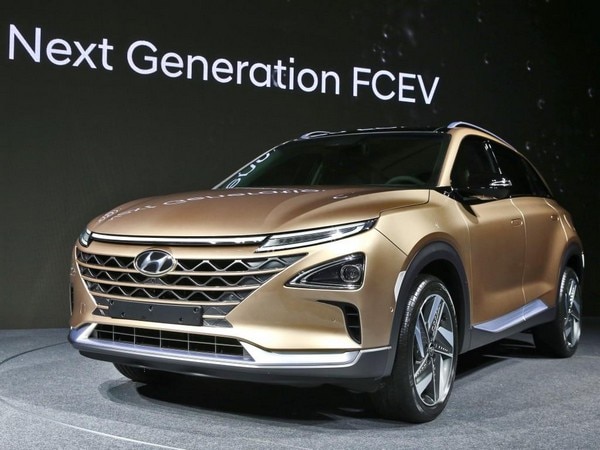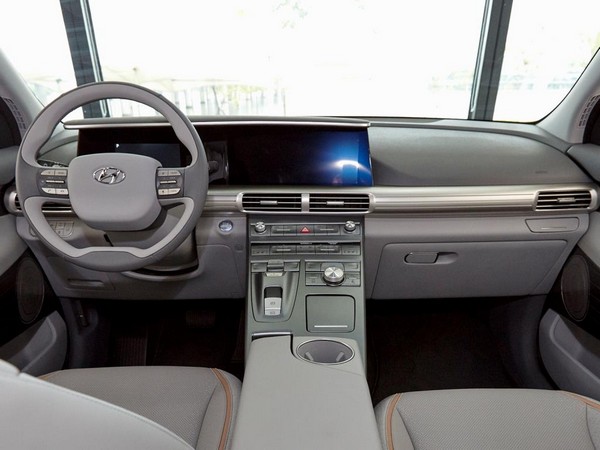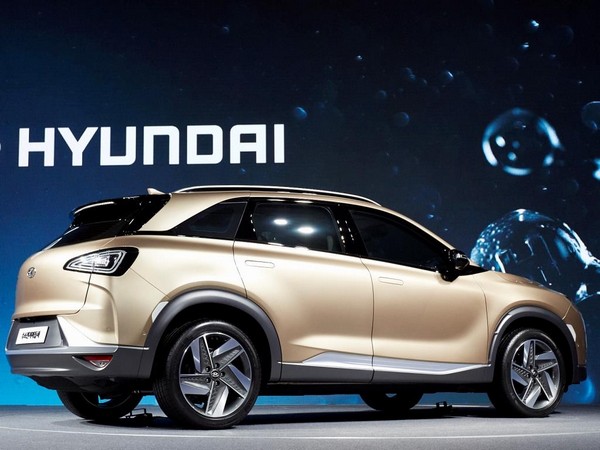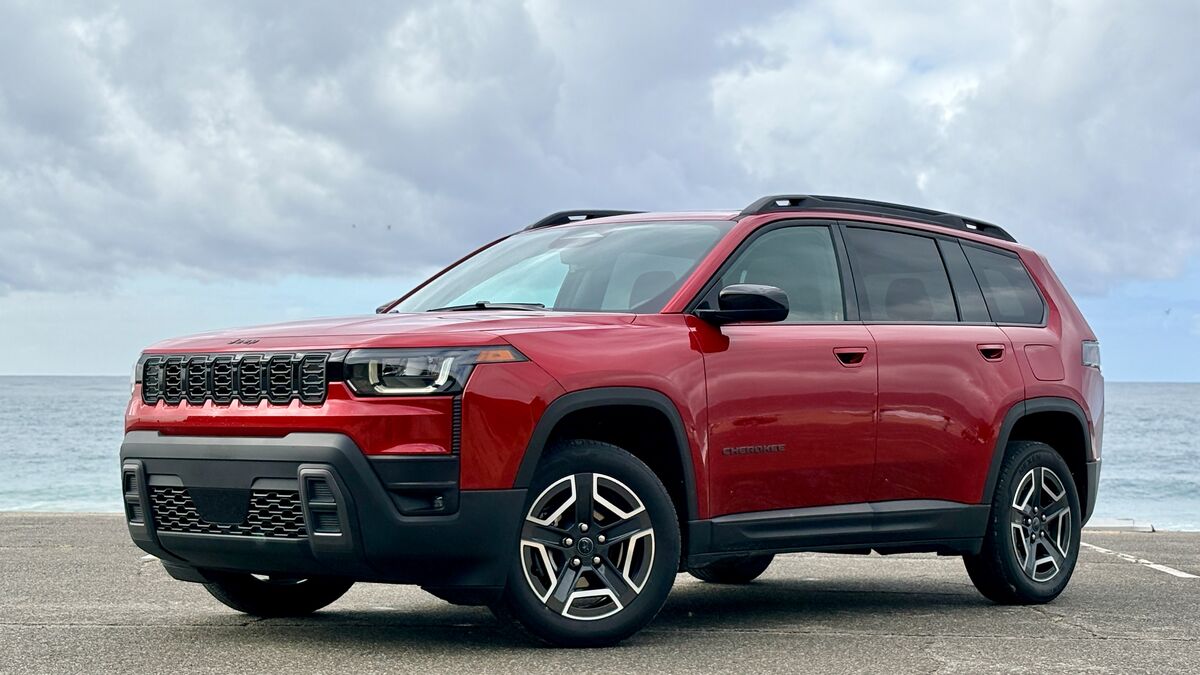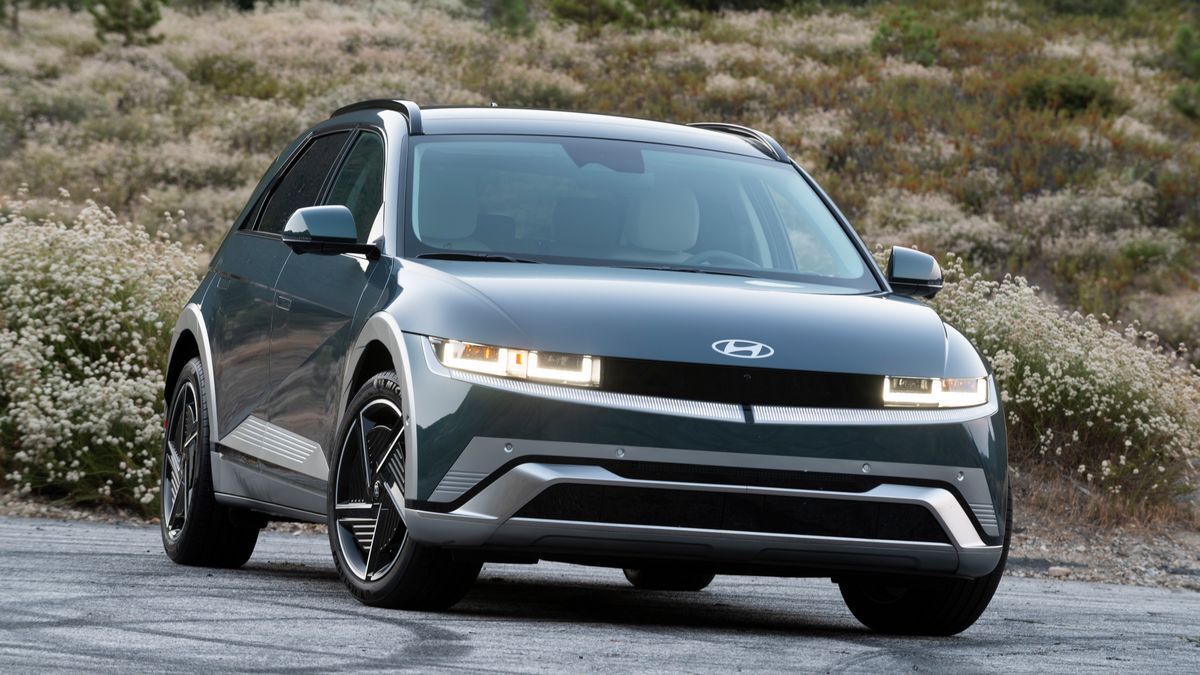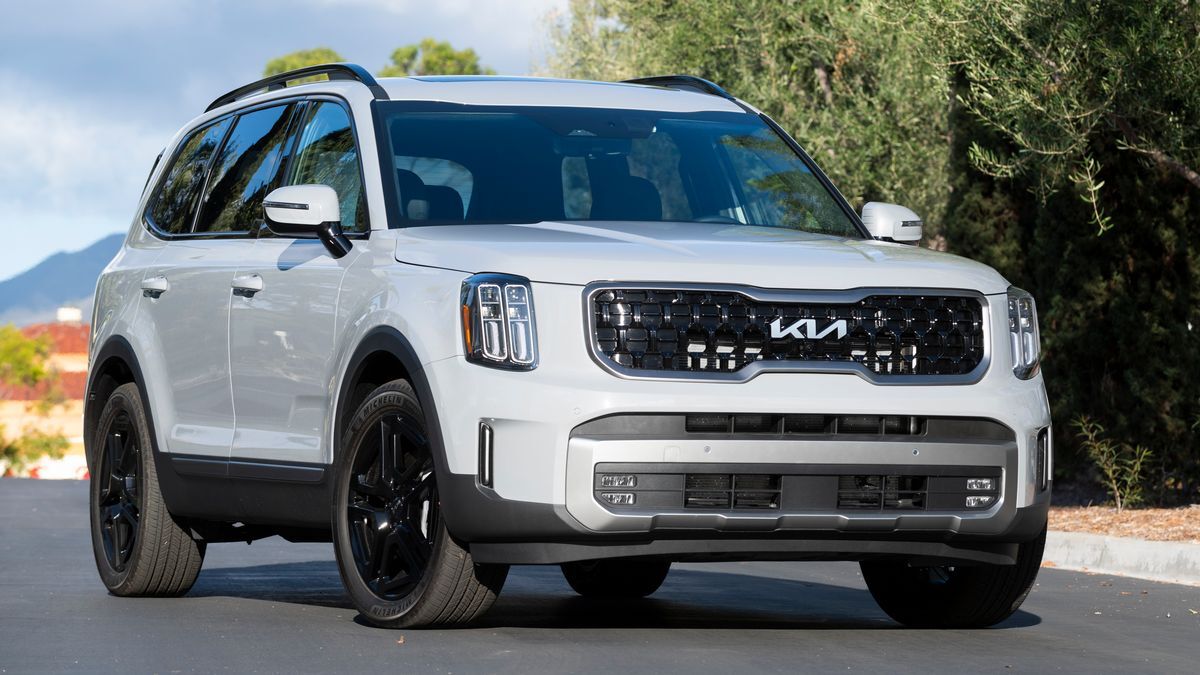Hyundai Motor Corporation released facts and photos about its upcoming hydrogen-powered Fuel Cell SUV which will replace the Tucson Fuel Cell in the U.S. market when it goes on sale here next year after its Korean launch. In addition to being significantly more efficient, Hyundai’s yet-unnamed next-gen FCEV promises enhanced performance, greater range and better durability as well as more advanced driver-assistance technologies. In addition to showing the near-production prototype, the automaker confirmed a Hyundai Group effort to introduce 31 new “eco-friendly” Hyundai/Kia/Genesis models into various global markets by 2020.
FCEV for the future
Borrowing a number of styling cues from the FE Fuel Cell Concept presented earlier this year in Geneva, Hyundai’s newest FCEV matches modern, minimalist character with nature-inspired organic forms to yield an aerodynamic package with solid presence. This well-tailored understatement also is evident in the cabin of this 5-seat hauler which matches highly legible digital displays and driver-centric controls with a selection of eco-friendly materials including fabric and suede seating surfaces.
Also: Get your first look at the new and redesigned cars of 2018
While many details about Hyundai’s new super-clean FCEV–including its name and the scope of new driver assists–won’t be disclosed will until its U.S. appearance at the 2018 CES Show in January, the automaker has confirmed a number of pertinent facts about the new Gen IV fuel cell system. For openers, it develops 161 horsepower (20 percent more than the current Tucson FCEV) and offers 60 percent operating efficiency, a gain of nine percent. Design advances now allow starting in temps as low as 22 degrees Fahrenheit and new catalyst technology ensures even greater durability.
Lower costs
Less costly to produce, Hyundai’s new fuel cell package also replaces two different-sized hydrogen storage tanks with three identically scaled units that can hold more gas per tank weight. That change is projected to yield up to 500 miles of range on the wildly optimistic European NEDC–think closer to 350-380 EPA miles–compared to the 265-mile capability of the current Tucson FCEV. “With exceptional efficiency, serene styling, and uncompromised performance, our next generation fuel cell SUV is the true epitome of an eco-friendly vehicle of the future,” said Lee Ki-sang, senior vice president of Hyundai Motor Group’s Eco Technology Center.
Hyundai also provided insight regarding its plans for developing a selection of eco-friendly, low-emission vehicles that rely on a variety of powertrains including electric, hybrid and fuel cell that will best suit the needs of its global customer base. Hyundai promises new hybrid variants, which will include even more SUVs and large vehicles. Hyundai also will focus on creating new front-engine/rear-drive and 4WD models that incorporate its proprietary Transmission-Mounted Electrical Device (TMED) system.
Also: See the 12 Kelley Blue Book Best Buys of 2017
Hyundai announced plans to establish a broad, multidivisional lineup of EVs that will begin with a battery-electric version of the new Kona crossover boasting a 240-mile range that’s due during the first half of 2018. An all-electric Genesis is set to hit the market in 2021 and an undisclosed EV with a range of 311 miles will follow at a later date. Hyundai said it will develop its first dedicated EV architecture that will be suitable for a broad range of long-distance models. Finally, the fuel cell program will be accelerated and focus on further trimming cost, improving packaging, boosting performance and enhancing durability with an eye towards being able to make FCEV systems viable in small sedans.
More Hyundai News…
